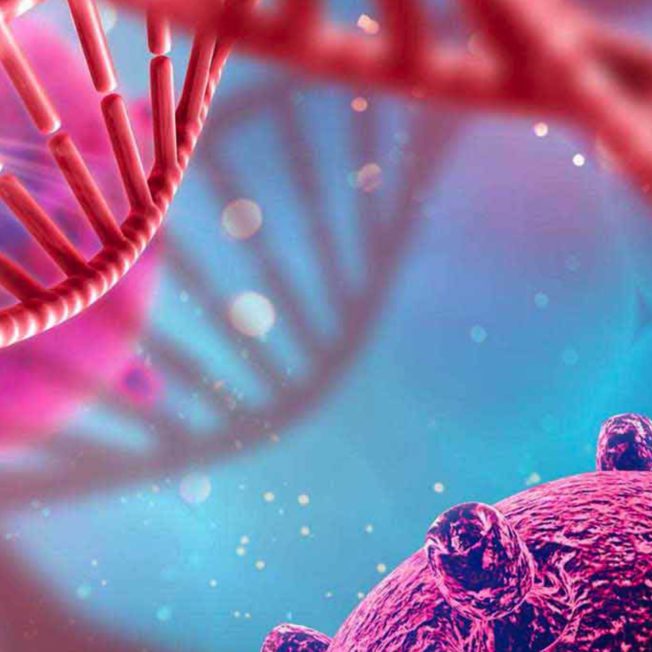Epigenetics provides the empowering antidote to the notion of pure genetic determinism. As Chicago- and Los Angeles-based naturopathic doctor Nadia Musavvir puts it, “Think of genes like a set of cards. You cannot change the cards you are dealt, but you can change how you play them.”
You’ve undoubtedly heard of the “nature vs. nurture” debate which attempts to explain the onset of health-related diagnoses. Research has revealed that the degree to which environmental and lifestyle factors — from our allostatic (i.e., stress) loads, to our diets, mental states, and sleep schedules — play an even greater role than we thought in gene expression. According to Dr. Joe Dispenza in Breaking the Habit of Being Yourself, “[A]round 95% of all illnesses are related to lifestyle choices, chronic stress, and toxic factors in the environment.”
So can lifestyle factors theoretically improve health outcomes across the life course? “Happily, yes! For most [genetic] responses, there is not a point of no return,” explain Amir Nobakht MD, MB, and stem cell biologist Ben Van Handel, PhD, co-founders of Heraux. They note that some are harder to change, but that even the process of aging can be mitigated by addressing inflammation, or inflammaging (i.e., the inflammation that occurs with age).
To be clear, this is not suggesting that genetic predisposition is not a significant health predictor; but it does mean that we possess a greater capacity to improve our health prognoses than we once thought. So long as we can improve the signals that cells are receiving — through stress-reduction practices, nutrient and supplement therapies, exercise, improved sleep, or even therapy to help re-frame and reprogram our responses to stressors — we can alter our gene expression in pro-health ways, to varying degrees.
Musavvir identifies optimizing diet and nutrients, gut health, detoxification, sleep, managing inflammation, and improving resiliency (i.e., the ability to cope in the face of stressors) as key factors used in functional medicine to help improve patients’ health outcomes. She reveals two specific instances where adjusting lifestyle factors can impact patients’ lives. “Nutrient-specific therapy for those with liver enzymes that have an impaired ability to detoxify chemicals [to] decrease toxic load could be helpful for preventing the onset of neurological disease such as Parkinsons or Alzheimers,” she reveals. Another example is “taking methylated B vitamins to decrease homocysteine levels in individuals with risk for heart disease.” Because ten percent of people carry a gene that inhibits the breakdown of homocysteine, this type of treatment plan is applicable to a large population.
It is important to note that the reversal of a diagnosis, improved symptoms, or changed prognosis do not indicate a change in the DNA sequence itself. Rather, epigenetics posits that a change in environmental/lifestyle factors created a change in gene expression. By taking a look at your genetic makeup, you can not only anticipate your potential for future illnesses, but this allows you and your physician to begin adjusting your health plans accordingly.
In some ways, genetic receptivity to the environment is as intuitive as adaptation, or evolution. “Gene expression in our cells is designed to be impacted by their environment,” explain Nobakht and Van Handel. They reference the body’s wound-healing response as an example of how cells take cues from the environment to influence their function and expression. They explain that cells are constantly interacting with their environment and changing their gene expression in response; problems arise when these gene functions become stuck ‘on’ or ‘off.’
Things get even more interesting when you look at the connection between chronic stress (and the corresponding hyper-arousal of the body’s stress response) and negative health outcomes (i.e., unfavorable genetic expression). Understanding why comes down to the mind-body connection which describes how our thoughts and internal states produce corresponding physiological responses in the body. As Dispenza writes, stress-induced emotions cue the genetic “dysregulation” of cells in ways that create disease. Thus, by consciously creating a life and environment in which you experience healthy, manageable levels of stress and pro-social, non-damaging emotions, you are — at the very least — not contributing the damaging health outcomes correlated with chronic stress. Some would argue that this is a critical step in signalling our genes to rewrite a healthier, happier future.
This empowering approach to health encourages our desires to live pro-wellness lifestyles. So there you have it: Wellness really is a nécessité.
Sources:
Dispena, Joe. Breaking the Habit of Being Yourself: How to Lose Your Mind and Create a New One. Carlsbad: Hay House, 2012. Print.


















